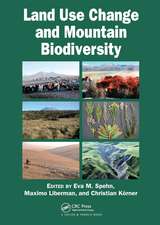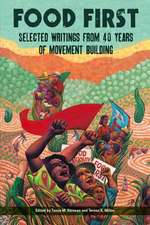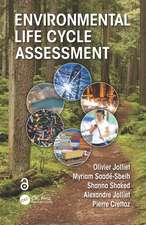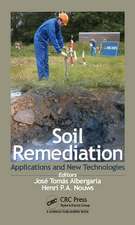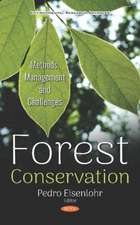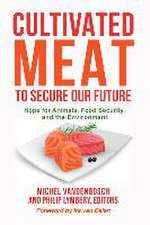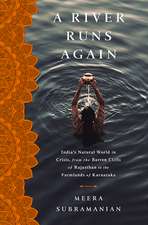Sixty Harvests Left: How to Reach a Nature-Friendly Future
Autor Philip Lymberyen Limba Engleză Hardback – 17 aug 2022
| Toate formatele și edițiile | Preț | Express |
|---|---|---|
| Paperback (1) | 62.43 lei 22-36 zile | +30.65 lei 5-11 zile |
| Bloomsbury Publishing – 7 iun 2023 | 62.43 lei 22-36 zile | +30.65 lei 5-11 zile |
| Hardback (1) | 185.88 lei 22-36 zile | |
| Bloomsbury Publishing – 17 aug 2022 | 185.88 lei 22-36 zile |
Preț: 185.88 lei
Nou
Puncte Express: 279
Preț estimativ în valută:
35.57€ • 36.91$ • 29.73£
35.57€ • 36.91$ • 29.73£
Carte disponibilă
Livrare economică 24 februarie-10 martie
Preluare comenzi: 021 569.72.76
Specificații
ISBN-13: 9781526619327
ISBN-10: 1526619326
Pagini: 358
Dimensiuni: 153 x 234 mm
Greutate: 0.7 kg
Editura: Bloomsbury Publishing
Colecția Bloomsbury Publishing
Locul publicării:London, United Kingdom
ISBN-10: 1526619326
Pagini: 358
Dimensiuni: 153 x 234 mm
Greutate: 0.7 kg
Editura: Bloomsbury Publishing
Colecția Bloomsbury Publishing
Locul publicării:London, United Kingdom
Caracteristici
PROFILE: Compassion in World Farming is a rapidly growing international charity that has 600,000 supporters and has well-connected patrons such as Joanna Lumley, Penelope Keith, former director of Friends of the Earth Jonathon Porritt and Jilly Cooper. Philip Lymbery is an expert in his field, and has excellent credentials for writing this book.
Notă biografică
Philip Lymbery is chief executive of the international farm-animal-welfare organisation Compassion in World Farming. In a position he has held since 2005, he has played a leading role in many major animal welfare reforms, including Europe-wide bans on veal crates for calves and barren battery cages for laying hens. He was appointed an ambassadorial 'Champion' for the UN Food Systems Summit in 2021. He has also spearheaded Compassion in World Farming's engagement with more than 1,000 food companies worldwide, leading to genuine improvements in the lives of more than two billion farm animals every year. A columnist for the Scotsman, his first book, Farmageddon, was listed as a Book of the Year by The Times. A visiting professor at the University of Winchester, he is also a keen ornithologist.
Recenzii
Intelligent and very well researched
Meticulously researched and engagingly written
The warnings are coming thick and fast and Lymbery's are clear, concise and truly frightening - we are burning and poisoning the global larder. But we have solutions that we must implement now
Timely and persuasive . this tell us what we need to do to heal the earth
Philip Lymbery pulls no punches in cataloguing the calamitous mistakes we've made in our food system, but he has bold and inspiring solutions to offer, too. It's time for Big Food, and governments everywhere, to act on them.
Beautifully crafted. A compelling, excoriating account of industrial farming - how it is driving the climate and biodiversity emergencies, while also undermining our health. Full of insights and encounters with pioneers of new ways of farming, Sixty Harvests Left is a call to action - to change our world from the ground up. A vitally necessary book.
In this beautifully written book, Philip Lymbery describes how intensive agriculture harms the environment and inflicts suffering on sentient animals. But after visiting and talking to those on the front line - scientists, farmers and food providers - he is able to show that there are sustainable alternatives. And that they are working. There is indeed hope for the future of our planet, and each one of us can play a part. I urge you to read Sixty Harvests Left.
The chilling title is the red flag; the contents, however, lay out all the remedies to save the planet and its species, including ours, and make for absorbing and sometimes terrifying reading. Minutely researched, and written for laymen as well as experts, Sixty Harvests Left deserves to be read world-wide and acted upon immediately. I cannot recommend it highly enough.
Powerful, purposeful and persuasive, read Philip Lymbery's book and we know what has to be done. It's simple really, look after the land, farm it sensitively, tread softly on this earth and all can still be well. We need to transform ourselves rapidly. This book is transformative. We must read, mark and learn, fast.
The true horror story of our current dependence on factory farming and intensive agriculture gets clearer by the day. Philip Lymbery pulls no punches in painting that grim picture. This dependence will bring down our civilisation as surely as our dependence on fossil fuels. But that is not our destiny, and you need to read Sixty Harvests Left more for its utterly convincing alternative vision of farming and food production available to us in the near future - all based on the three Rs: regenerative farming, reduction of animal protein, and rewilding the soil. I'd be very surprised if you don't end up appreciating this book as much as I did.
Philip Lymbery's great service, through beautiful prose and deep research, is to amplify the siren call from our planet and the web of life. Through him, change becomes not only necessary and desirable, but irresistible.
Thought-provoking. Told through the seasons and finishing with a new start in Spring, Sixty Harvests Left gives us reason to look forward to a brighter farming future and the possibilities that can be achieved through care of our greatest natural asset, soil. Home to a quarter of the world's biodiversity, soil is life and our life depends on it. Lymbery speaks to practitioners with their feet firmly on the ground and gives hope that new ways in farming will provide for a better future. A fascinating and positive read!
An urgent, evidence-based, visionary approach to the most challenging decisions facing humanity. This is a brave, fascinating, game-changing book.
This profoundly important book should be read by all who would like humanity to survive beyond one more human lifetime, and the solutions it proposes should implemented as if our futures depend on it - which they do
Sixty Harvests Left is not only beautifully written, it is jam-packed with the evidence we need to change our lives in order to save our planet. Philip Lymbery draws us in, in a lyrical and seductive manner, whilst imparting vital, life-changing information. Only we can save our planet and Sixty Harvests Left shows us how. Make sure you read it before it's too late. You won't regret it.
Excellent - personal and engaging. Lymbery's life experiences make it very readable, allowing him to speak with authority and honesty . An important challenge to the vested interests that make our life on earth unsustainable.
Philip Lymbery is one of the few who really understand the connections between farming and nature ... He is the most important thinker writing about these crucial issues - and the way forward
Throughout the book but particularly in the final part, titled Spring, Lymbery highlights the incredible work being done across the sector in an attempt to inspire others to take up the mantle. His rallying cry is twofold - for the industry to instigate a mass movement of sustainable and regenerative agriculture, and for consumers to change their diet to fewer, more sustainable animal products. While the changes needed seem daunting, especially on an industry-wide level, Lymbery is clear that we don't have a choice.
A mine of valuable, referenced and quotable information
Meticulously researched and engagingly written
The warnings are coming thick and fast and Lymbery's are clear, concise and truly frightening - we are burning and poisoning the global larder. But we have solutions that we must implement now
Timely and persuasive . this tell us what we need to do to heal the earth
Philip Lymbery pulls no punches in cataloguing the calamitous mistakes we've made in our food system, but he has bold and inspiring solutions to offer, too. It's time for Big Food, and governments everywhere, to act on them.
Beautifully crafted. A compelling, excoriating account of industrial farming - how it is driving the climate and biodiversity emergencies, while also undermining our health. Full of insights and encounters with pioneers of new ways of farming, Sixty Harvests Left is a call to action - to change our world from the ground up. A vitally necessary book.
In this beautifully written book, Philip Lymbery describes how intensive agriculture harms the environment and inflicts suffering on sentient animals. But after visiting and talking to those on the front line - scientists, farmers and food providers - he is able to show that there are sustainable alternatives. And that they are working. There is indeed hope for the future of our planet, and each one of us can play a part. I urge you to read Sixty Harvests Left.
The chilling title is the red flag; the contents, however, lay out all the remedies to save the planet and its species, including ours, and make for absorbing and sometimes terrifying reading. Minutely researched, and written for laymen as well as experts, Sixty Harvests Left deserves to be read world-wide and acted upon immediately. I cannot recommend it highly enough.
Powerful, purposeful and persuasive, read Philip Lymbery's book and we know what has to be done. It's simple really, look after the land, farm it sensitively, tread softly on this earth and all can still be well. We need to transform ourselves rapidly. This book is transformative. We must read, mark and learn, fast.
The true horror story of our current dependence on factory farming and intensive agriculture gets clearer by the day. Philip Lymbery pulls no punches in painting that grim picture. This dependence will bring down our civilisation as surely as our dependence on fossil fuels. But that is not our destiny, and you need to read Sixty Harvests Left more for its utterly convincing alternative vision of farming and food production available to us in the near future - all based on the three Rs: regenerative farming, reduction of animal protein, and rewilding the soil. I'd be very surprised if you don't end up appreciating this book as much as I did.
Philip Lymbery's great service, through beautiful prose and deep research, is to amplify the siren call from our planet and the web of life. Through him, change becomes not only necessary and desirable, but irresistible.
Thought-provoking. Told through the seasons and finishing with a new start in Spring, Sixty Harvests Left gives us reason to look forward to a brighter farming future and the possibilities that can be achieved through care of our greatest natural asset, soil. Home to a quarter of the world's biodiversity, soil is life and our life depends on it. Lymbery speaks to practitioners with their feet firmly on the ground and gives hope that new ways in farming will provide for a better future. A fascinating and positive read!
An urgent, evidence-based, visionary approach to the most challenging decisions facing humanity. This is a brave, fascinating, game-changing book.
This profoundly important book should be read by all who would like humanity to survive beyond one more human lifetime, and the solutions it proposes should implemented as if our futures depend on it - which they do
Sixty Harvests Left is not only beautifully written, it is jam-packed with the evidence we need to change our lives in order to save our planet. Philip Lymbery draws us in, in a lyrical and seductive manner, whilst imparting vital, life-changing information. Only we can save our planet and Sixty Harvests Left shows us how. Make sure you read it before it's too late. You won't regret it.
Excellent - personal and engaging. Lymbery's life experiences make it very readable, allowing him to speak with authority and honesty . An important challenge to the vested interests that make our life on earth unsustainable.
Philip Lymbery is one of the few who really understand the connections between farming and nature ... He is the most important thinker writing about these crucial issues - and the way forward
Throughout the book but particularly in the final part, titled Spring, Lymbery highlights the incredible work being done across the sector in an attempt to inspire others to take up the mantle. His rallying cry is twofold - for the industry to instigate a mass movement of sustainable and regenerative agriculture, and for consumers to change their diet to fewer, more sustainable animal products. While the changes needed seem daunting, especially on an industry-wide level, Lymbery is clear that we don't have a choice.
A mine of valuable, referenced and quotable information


